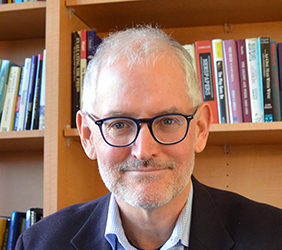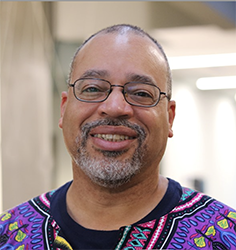
Date: Tuesday, December 12, 2023
Time: 12:00pm – 1:00pm
Location: Zoom
Abstract: Our project examines media coverage of lynching from 1789 to the current era. Researchers examined metadata of 60,000 pages of news coverage in the Library of Congress’ Chronicling America database and conducted a computational text analysis of a stratified sample. We find that some news reports sought to normalize this violence by describing members of lynch mobs as citizens seeking to pursue justice. A similar examination of Black press coverage showed divergent priorities in news narratives. Our sample of 714 Black newspaper articles tended to emphasize civil society narratives such as the legal system whereas descriptions of violence had greater prominence in a sample of 1,387 mainstream newspaper articles. Article from The Conversation: This course uses big data to examine how American newspapers covered lynchings (READ MORE)
Rob Wells, PhD, Associate Professor, Merrill College of Journalism, University of Maryland

Rob Wells is an associate professor at the Philip Merrill College of Journalism at the University of Maryland, where he teaches reporting and data journalism. Between 2016-2021, Wells taught at the School of Journalism and Strategic Media at the University of Arkansas, where he was associate professor and led the graduate program. He is the author of The Insider: How the Kiplinger Newsletter Bridged Washington and Wall Street (University of Massachusetts Press, 2022). The Insider won the Ray Hiebert History of Journalism Endowed Award, University of Maryland, Philip Merrill College of Journalism in 2023. He also is the author of The Enforcers: How Little Known Trade Reporters Exposed the Keating Five and Advanced Business Journalism (University of Illinois Press, 2019), which is an extension of his doctoral research which examines investigative business journalism and the influence of the trade press. In 2016, he earned a doctorate in Journalism Studies at the University of Maryland Philip Merrill College of Journalism. In 2013, he earned a Master of Arts in Liberal Studies at St. John’s College in Annapolis; he holds a Bachelor of Arts in Government from California State University, Sacramento. Prior to his academic career, Wells was Bureau Chief of Dow Jones Newswires in Washington, D.C. and then Deputy Bureau Chief of The Wall Street Journal Washington bureau; he has also reported for Bloomberg News, The Associated Press and newspapers in California.
Tyriana Evans, doctoral student, History, University of Maryland

Tyriana Evans is currently a PhD history student at the University of Maryland, College Park. Her research focuses on the history of the Black Press and news coverage of social protest. Evans has a B.A. in Journalism and Mass Communication from The George Washington University and an M.A. in Pan African Studies from the Syracuse University. She has previously worked in political broadcast journalism and public relations.
Mohamed Salama, doctoral student, Journalism, University of Maryland

Salama, a native of Egypt, has gained extensive journalistic experience, reporting for numerous publications, including al-Monitor, the Globe Post, BBC Arabic, and Xinhua News Agency. Salama is a Ph.D. student in Journalism at the Philip Merrill College of Journalism, University of Maryland. He is also participating in a significant big data research project, analyzing media coverage of lynchings in the U.S. A holder of a master’s degree from American University-Cairo, Salama was a Fulbright research fellow and instructor at the University of Kentucky. Additionally, he is a regular Arab voice for Youth IGF content production and serves as the host for Youth IGF media events.
Industry Expert Guest Speaker
Nicholas Creary, Ph.D.

Vice-President, Maryland Lynching Memorial Project Chair, Reconciliation and Justice Committee of the Maryland Lynching Truth and Reconciliation Commission Institutional Justice, Equity, Diversity and Inclusion Officer, Middlebury Institute of International Studies at Monterey
SoDa Seed Grant Awarded Project Title: Racial Terror Lynching and the Press, 1789-1963 SoDa Seed Grants: The projects under this initiative may address any societal challenge that affects a large number of people, including but not limited to health, public safety, justice, race, gender, education, employment, transit, and political representation. The goal of these seed grants is to encourage faculty to develop collaborative projects that stimulate the advancement of new ideas that can build the university’s expertise toward a national reputation in the broad area of social data science. The projects blend the development or use of innovative data science methods or new measurements, the advancement of scholarship within or across disciplines, and progress in addressing a societal challenge. The SoDa Center at UMD SoDa Symposia highlight the diverse challenges and opportunities in the emerging area of Social Data Science. Combining insights of SoDa researchers and partners from UMD and around the world, these regular virtual events showcase research and expert commentary about advances and open problems in the use of surveys, administrative, and trace data to understand and shape the social world we live in. Ranging from technical challenges of gathering high-quality data, ethical management of social data at scale, or examples of the power of social data science in education, business, government, or civic life, SoDa Symposia provide an opportunity for a broad audience of researchers, students, and practitioners to learn more about the potential of social data science to change the world.


